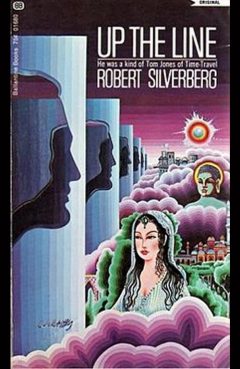Up the Line

Release Date: //1969
Country of Release:
Length:
MPAA:
Medium: Literature
Genre:
Release Message: Time travel as guided tours to past historical events.
Description: Time travel as guided tours to past historical events. The plot revolves mainly around the paradoxes brought about by time travel, though it is also notable for its liberal dosage of sex and humor. The story's protagonist is Jud Elliott III, a failed Harvard history masters student in 2059. Bored with his job as a law clerk, he takes up a position with the Time Service as a Time Courier. After an introductory course, Jud shunts up and down the time line ("up the line" is travel into the past; "down the line" is forward time travel, but only to "now-time," Jud's present of 2059) as a guide for tourists visiting ancient and medieval Byzantium/Constantinople. Jud's problems include not only stupid tourists, but also greedy and mentally unstable colleagues who attempt to cause various types of havoc with the past. He is forced to break the rules in order to patch things up without drawing the attention of the Time Patrol. When he meets and falls in love with the 'marvelous transtemporal paradox called Pulcheria' - his own multi-great grandmother - Jud succumbs to the lure of the past, creates irreparable paradoxes, and faces the inescapable clutches of the Time Patrol. Silverberg's narrative includes some cleverly worked out details about the problems of time-travel tourism. For example, the number of tourists who over the years wish to witness the Sermon on the Mount has increased the audience at the event from the likely dozens to hundreds and even thousands. Time-tour guides re-visiting the same event must also take care not to scan their surroundings too closely, lest they make eye contact with themselves leading another tour party. Silverberg's interest in the Byzantine era of Roman history is put to use with a vivid description of Constantinople during the reign of Justinian, and the Nika riots of 532.